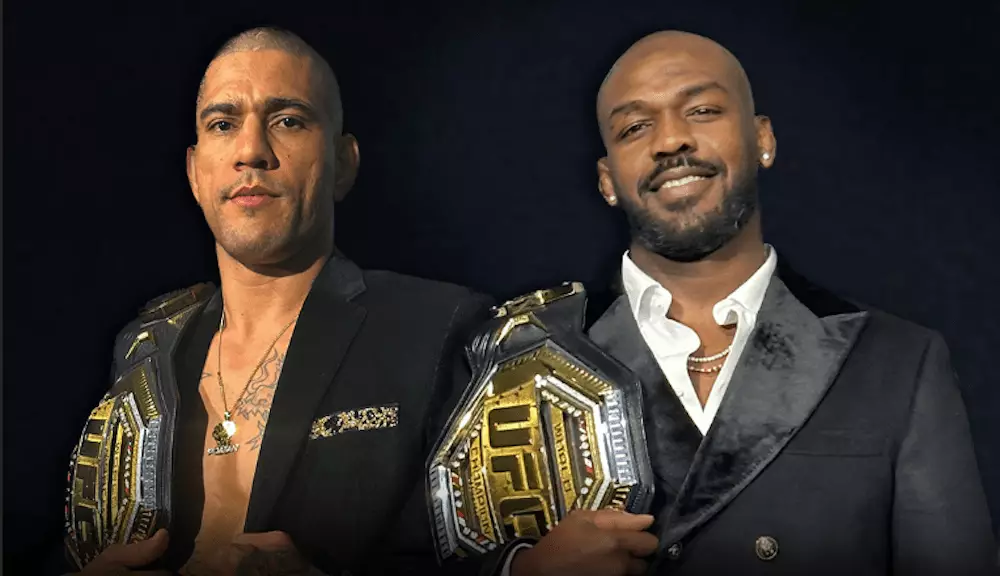In the world of the UFC, fighters often find their trajectory altered by shifting alliances and unforeseen challenges. One of the most prominent figures in this landscape is Jon Jones, whose legacy as one of the greatest mixed martial artists is overshadowed by recent statements that threaten the traditional hierarchy of title pursuits. The remarks from Jones regarding his future plans have prompted an unexpected response from UFC CEO Dana White, underscoring the complex nature of title unification and fighter obligations within the organization.
Jon Jones vs. Interim Champion Dynamics
Jon Jones, holding a near-legendary 27-1 record with a history of accolades, recently made headlines with his declarations regarding upcoming fights. Before his heavyweight title defense against Stipe Miocic at UFC 309, Jones dismissed the notion of unifying his title with that of interim champion Tom Aspinall. Instead, he expressed a distinctive desire to face Alex Pereira, the reigning light heavyweight champion. This sentiment was perceived as controversial and is a clear deviation from the long-standing tradition in the UFC where champions are expected to clear out their division before venturing into super fights.
Dana White’s response reveals a more nuanced perspective on this issue. While he initially expressed disappointment in Jones’ reluctance to unify against Aspinall, White suggested a compromise could exist—opening the door for a Jones-Pereira showdown, but only following a successful defense against Aspinall. This balancing act illustrates the enduring complexities of maintaining the integrity of championship titles while accommodating the star power of fighters like Jones.
Obligations Beyond Personal Desires
It’s imperative to recognize that, in an organization as competitive and high-stakes as the UFC, fighters carry not only their ambitions but also the responsibility of propelling the sport forward. White articulated a profound point: as Jones reaches this stage in his career, he must acknowledge the younger fighters vying for championship opportunities. If Jones were to retire suddenly, Aspinall would, by default, assume the heavyweight champion mantle. Thus, the onus lies on Jones to fight not just for personal glory but to help bolster the sport’s future by offering younger fighters the exposure and opportunities they seek.
Furthermore, the delicate relationship between fighters and management plays a significant role in how bouts and titles are negotiated. White’s strategy reflects an understanding that leveraging Jones’ fame can yield massive pay-per-view sales, but this cannot be done at the expense of credibility in title legitimization.
As Jones prepares to enter the octagon against Miocic, his statements and their repercussions create an intriguing narrative surrounding his career’s next chapter. Should he emerge victorious, the question becomes not only about his next opponent but also about how he chooses to navigate the obligations of his title. Will he take the path of legacy and challenge Aspinall, or will he pursue a more lucrative and perhaps less consequential fight against Pereira? The answer may not only define his legacy but also shape the future of the heavyweight division for years to come. The UFC landscape pivots on these decisions, revealing the ongoing dance between personal ambition and competitive duty.

